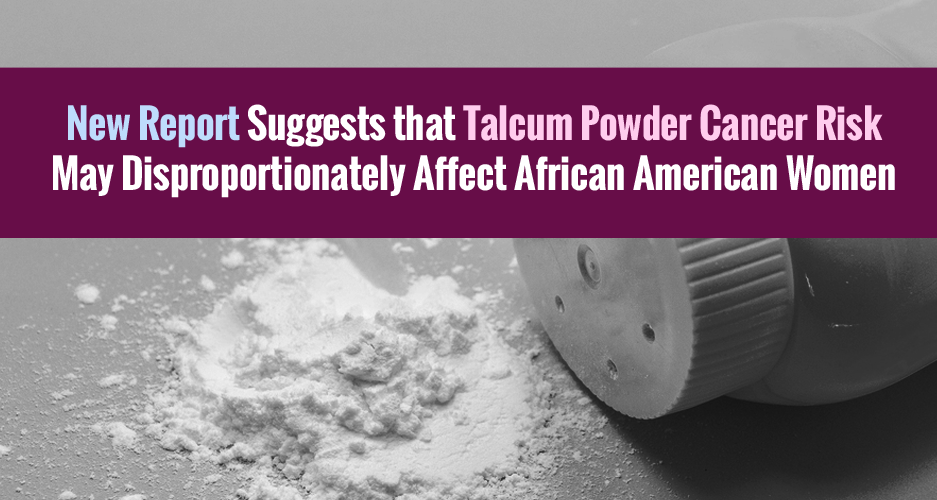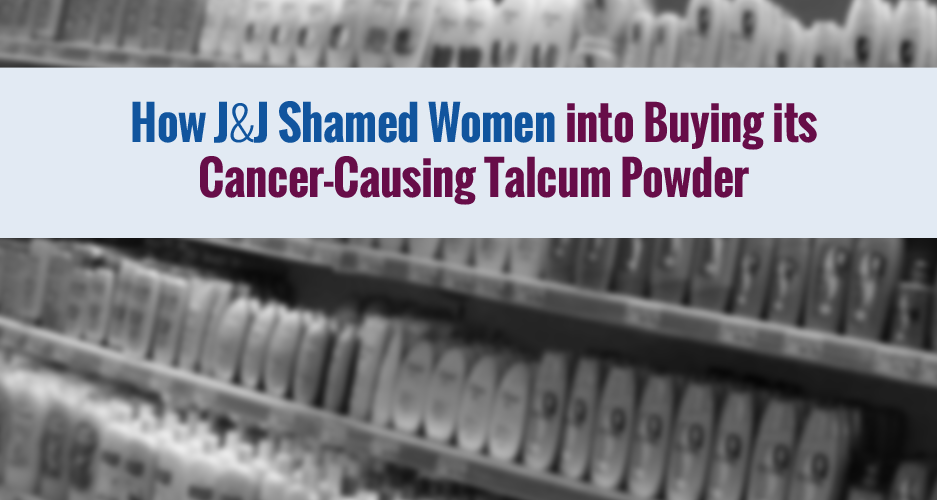Landmark Jury Verdicts Increase Awareness About Talcum Powder Cancer Risk
Two significant verdicts awarded within months of one another by juries in the same courthouse in St. Louis, Missouri have raised awareness recently about the potential for talcum powder products to cause cancer in women. If you or a loved one has developed ovarian cancer or another type of cancer, and you believe long-term exposure to talcum powder to be the cause, you may be entitled to financial compensation for your injuries, medical expenses, emotional trauma and other related damages. Contact a knowledgeable talcum powder cancer lawyer today to explore your possible compensation options.
Talcum Powder Linked to Ovarian Cancer
Talcum powder products like Johnson & Johnson’s Baby Powder and Shower-to-Shower body powder are made from talc, a mineral composed mostly of the elements magnesium, oxygen and silicon. Because talc is effective at absorbing moisture and reducing friction, talcum powder is often used to prevent diaper rash in babies, and has been used by generations of women to stay fresh and prevent vaginal odors. Many women today regularly dust their underwear, sanitary napkins or genital area with talcum powder, unaware that the seemingly harmless practice may increase their risk of ovarian cancer and other cancers.
The potential link between talcum powder and ovarian cancer has been evident since at least the 1970s, yet Johnson & Johnson still has not added a warning to the labels of its talcum powder products, indicating that perineal use of talc-based powders can increase the risk of ovarian cancer. As a result, many women who have used talcum powder for years to stay fresh and dry are now pursuing legal claims against Johnson & Johnson, accusing the company of intentionally concealing the alleged link between talcum powder and cancer, and to date, at least two talcum powder trials have resulted in multi-million dollar verdicts against Johnson & Johnson.
Recent Verdicts in the Talcum Powder Litigation
One of the recent talcum powder cancer verdicts – a whopping $72 million in compensatory and punitive damages – was awarded to the family of an Alabama woman who died from ovarian cancer after using Johnson & Johnson’s Baby Powder and Shower-to-Shower talcum powders for personal hygiene for more than 30 years. Internal documents presented at the trial indicated that Johnson & Johnson knew about the alleged link between talcum powder and ovarian cancer for years, yet withheld this information from consumers and the medical community.
The second talcum powder verdict included a $55 million award for a South Dakota woman who alleged that her use of Johnson & Johnson’s talcum powder for close to 40 years caused her to develop ovarian cancer. According to one of the jurors involved in the trial, internal memos indicating that J&J manipulated research and lied to the public about the dangers of talc “pretty much sealed my opinion.” As he told a St. Louis newspaper in the aftermath of the trial, “They tried to cover up and influence the boards that regulate cosmetics. They could have at least put a warning label on the box, but they didn’t. They did nothing.”
Studies Highlight Dangers of Talc
Although these talcum powder cancer verdicts are very recent, studies linking talc-based baby and body powders to a potential increased risk of ovarian, uterine and cervical cancer date back decades. The first study to warn that talcum powder may be dangerous was published in 1971, and in 1982, another study conducted by an epidemiologist at Brigham & Women’s Hospital in Boston indicated that talc particles from body powder products used for feminine hygiene purposes can get into a woman’s upper genital tract, possibly increasing their risk of ovarian cancer. In 2016, a talcum powder study published in the medical journal Epidemiology reported the ovarian cancer risk to be as high as 33%.
Compensation for Talcum Powder Cancer Injuries
In the years since the first researchers highlighted the potential connection between talcum powder and ovarian cancer, more than a dozen epidemiological studies have reported that long-term use of talcum powder dusted on a woman’s groin area can increase their risk of ovarian cancer, with some putting the greater risk at 30% or more. If you believe you have been adversely affected by cancer side effects of talcum powder, consult an experienced product liability lawyer today to discuss your legal options. You may have grounds to file a talcum powder cancer lawsuit against Johnson & Johnson, in order to seek fair and timely reimbursement for your losses.







